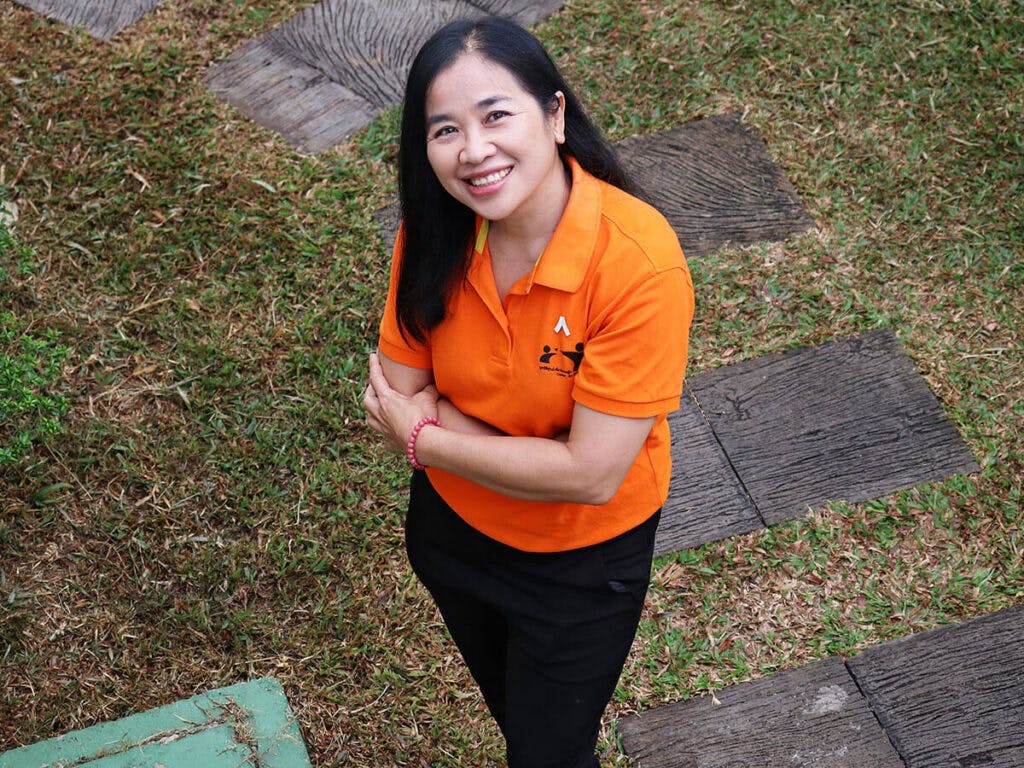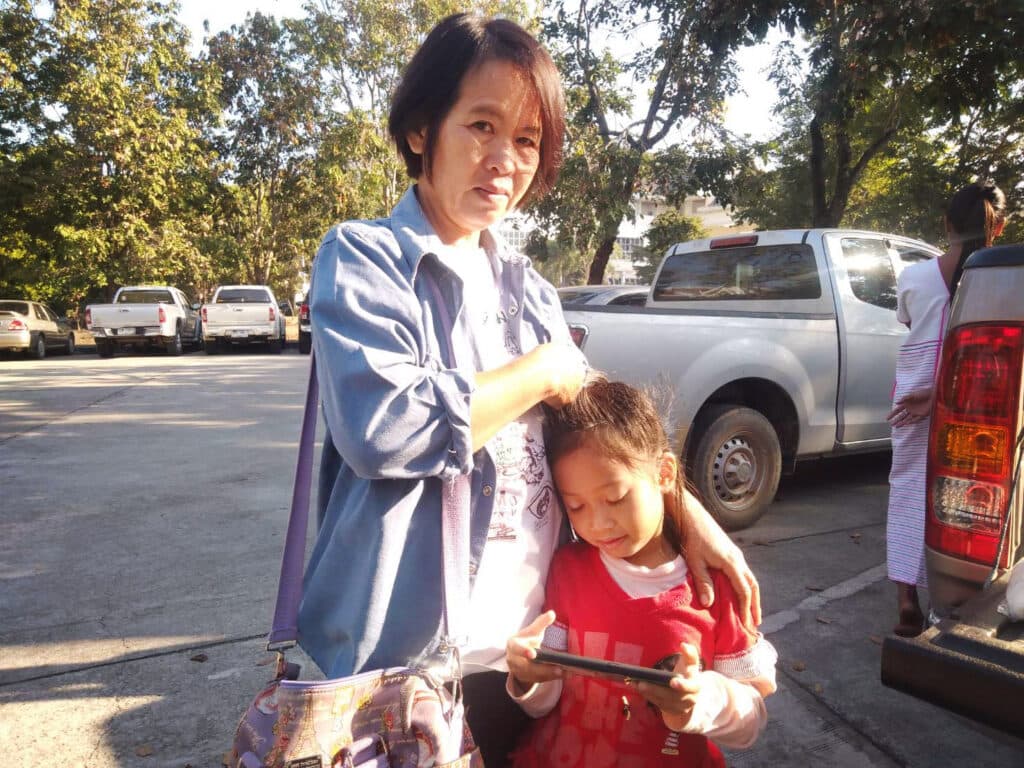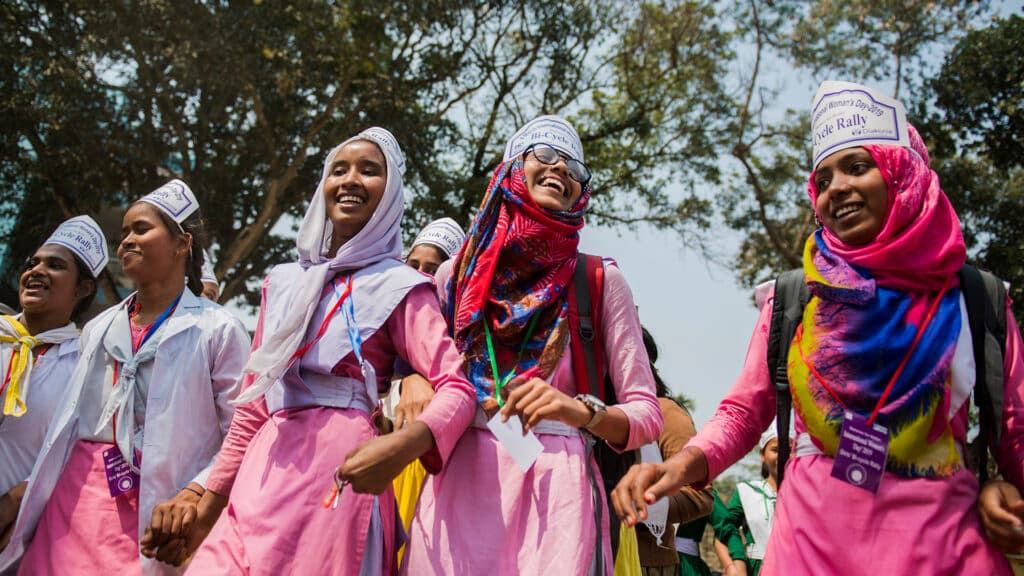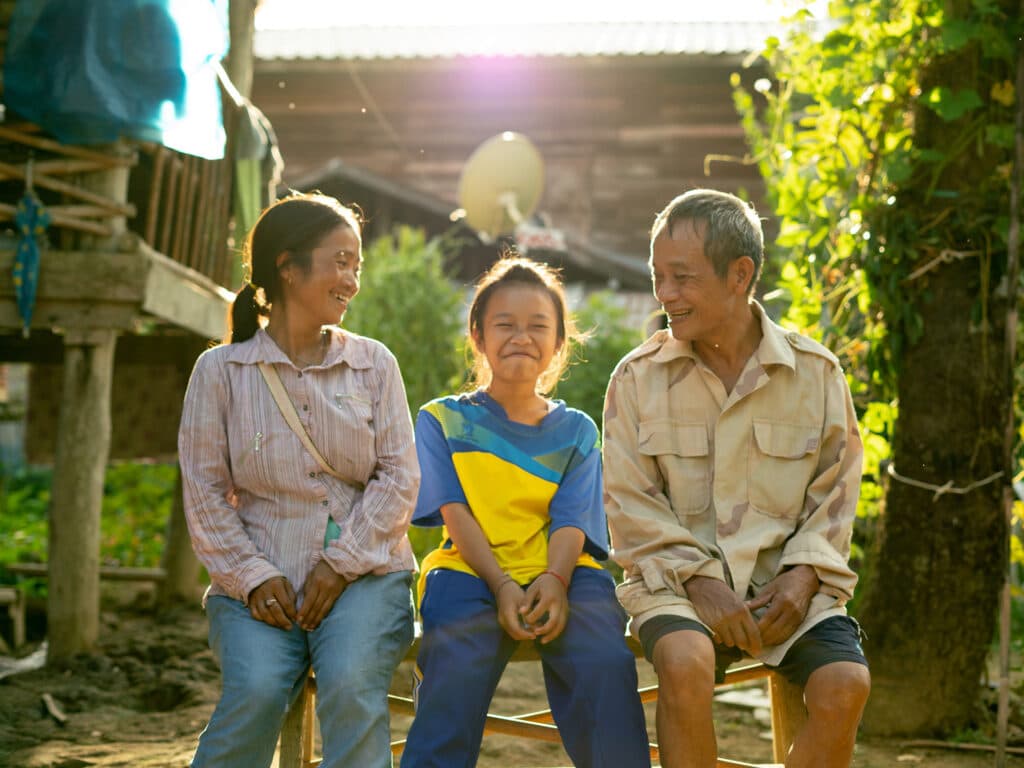
Indigenous Voices Shape Thai Bill
Sakda Saenmi adjusted his traditional Lisu collar as he entered the towering Parliament building in Bangkok, a world away from his misty mountain home. As the Secretary-General of the Council of Indigenous Peoples in Thailand (CIPT), senior staff member of Inter Mountain Peoples’ Education and Culture in Thailand Association (IMPECT), and now a committee member reviewing the draft Indigenous Peoples in Thailand bill, he had made this journey countless times.
His briefcase, heavy with more than just papers, carried the weight of generations of struggles - stories of elders denied healthcare, children lost in school systems, and ancestral lands threatened by laws that didn't recognize traditional guardianship.
As Sakda took the elevator to another crucial meeting, he felt a glimmer of hope. Progress was slow, but with each conversation, the invisible was becoming visible, and today, he carried not just his own voice, but the echoes of forests, mountains, seas, and resilient people fighting to preserve their way of life.
The Long Road to Rights
According to the CIPT, Indigenous Peoples in Thailand include 46 different ethnic groups living all over the country. The challenges facing them are complex and multifaceted. While lack of official recognition remains a fundamental issue, the problems extend far beyond this, encompassing land rights, access to basic welfare, citizenship, and the preservation of cultural identity. Kriangkrai Chichuang, CIPT Chairperson, expressed the challenges faced by several Indigenous communities:
"We often encounter difficulties accessing government services, and some of us struggle with full recognition as Thai citizens, despite being born here. While cabinet resolutions have outlined measures to address our communities' issues, implementing these decisions has been challenging. Local officials sometimes have trouble acknowledging or acting on these resolutions. This is why we believe legislation specifically addressing Indigenous Peoples rights could be beneficial."

In response to these challenges, a social movement emerged in 2012 when the leaders of the Network of Indigenous Peoples in Thailand and supported partners including Diakonia initiated the drafting of the Council of Indigenous Peoples in Thailand bill. The proposed legislation aims to safeguard the rights of Indigenous Peoples, with a particular focus on their right to self-determination. Crucially, it seeks to establish mechanisms for addressing human rights issues in ways that respect and incorporate Indigenous ways of life.
Looking back on the journey, Sakda shared, "We submitted the draft proposal to the National Legislative Assembly in 2015, but political unrest in Thailand suspended our progress. It took five years before we could resume our efforts. In 2020, with over 10,000 eligible voters supporting us, we finally made it onto the House of Representatives' agenda. But then the parliament dissolved, and once again, our hopes were put on hold."

Despite these setbacks, the determination to push forward the bill remained strong. Following the general election in May 2023, Sakda and partner organizations submitted a letter of intent to the House of Representatives, urging them to reintegrate the draft bill into their agenda. Their persistence paid off on February 28, 2024, when the House of Representatives approved the principles of the draft bill and established a special committee of 42 members to review it.
Defining Identity, Shaping Futures
As the review process unfolded, a crucial debate emerged, centering on the definitions of "ethnic groups" and "Indigenous Peoples". While Thailand's constitution mentions the rights of "ethnic groups" to practice their traditions, it doesn't use the term "Indigenous Peoples." This leaves many communities in a difficult position - acknowledged in some ways, but without access to the full protections that come with Indigenous status.
Associate Professor Doctor Mayuree Thawornpath from Mahidol University's Research Institute of Language and Culture Studies of Asia (RILCA) explained the key difference:

“Indigenous Peoples have a continuous historical connection to their ancestral lands and specific legal rights under international law, while ethnic groups are identified by cultural traits and typically lack these legal protections and ties to specific territories.”
Associate Professor Doctor Mayuree Thawornpath
The current draft bill proposed by the CIPT advocates for the term 'Indigenous Peoples' rather than the broader 'ethnic groups'. This distinction is crucial, as it could grant these communities stronger rights to their ancestral lands and greater protection for their traditional practices under international law. The petition team emphasizes that many of these communities have inhabited their territories for centuries, preceding the formation of Siam and modern Thailand. They existed before the establishment of current state boundaries, maintaining their distinct cultures and practices.
However, the path to recognition is not without its challenges. Concerns have been raised about potential complications in land rights and international agreements if Indigenous status is officially recognized. These debates reflect the complex societal attitudes and political influences shaping Thailand's approach to ethnic diversity. Despite these hurdles, Indigenous communities persist in their struggle for official recognition under the Thai constitution, seeking to secure their rights and identity within the national framework.

A Voice for the Invisible
Diakonia in Thailand has supported IMPECT for over decades. Sompong Asakit, Thailand Program Officer, explained this long-standing support:
"This bill is a crucial step towards recognizing and protecting the unique identities and rights of these indigenous communities. When we saw that the draft bill was progressing and that IMPECT and their networks needed support to advocate for the law, we decided to provide additional funding to support their efforts in the Parliament."
Diakonia's commitment extends beyond financial assistance, encompassing the link of network and partnership in the push for legislative change. The organization has also signed the petition of the draft bill proposed by the Council of Indigenous Peoples in Thailand. This collaborative approach has been crucial in maintaining momentum to enhance the rights of Indigenous Peoples in Thailand.
As the review process of the draft bill continues, the network of Indigenous leaders remains at the forefront of the movement.

“By endorsing this bill, Thailand has an opportunity to significantly reduce inequalities within the nation.”
Sakda Saenmi
Sakda, considering the ongoing efforts, voiced his optimism: "We've engaged in dialogue with all political parties and politicians to foster understanding of our issues and address their concerns. We've studied Indigenous laws from various countries, such as the Philippines' recognition of ancestral lands and the establishment of the Sami Council in the Nordic countries and adapted these concepts to our context. By endorsing this bill, Thailand has an opportunity to significantly reduce inequalities within the nation. We're hopeful that the House of Representatives will accept this draft bill and pass it to the Senate by the end of this year."
As the sun sets over Bangkok's skyline, Sakda's briefcase feels lighter, yet more significant than ever. The road ahead may still be long, but for Thailand's Indigenous Peoples, the horizon of recognition is finally coming into view.
About IMPECT
Inter Mountain Peoples’ Education and Culture in Thailand Association (IMPECT) is a non-governmental development organization founded and staffed entirely by representatives of the Indigenous groups and networks involved in the association. IMPECT focuses on development work within the Indigenous populations of 14 Indigenous groups residing in the highlands of the northern provinces of Thailand. The organization works closely with various Indigenous networks at the local, national, and regional levels. Moreover, IMPECT has also been assigned as the Council of Indigenous Peoples in Thailand (CIPT) office since 2014 and has acted in the key secretariat’s roles and responsibilities for the Indigenous Peoples Movement in Thailand to the present.






